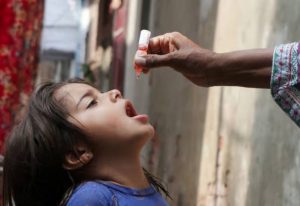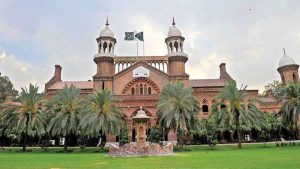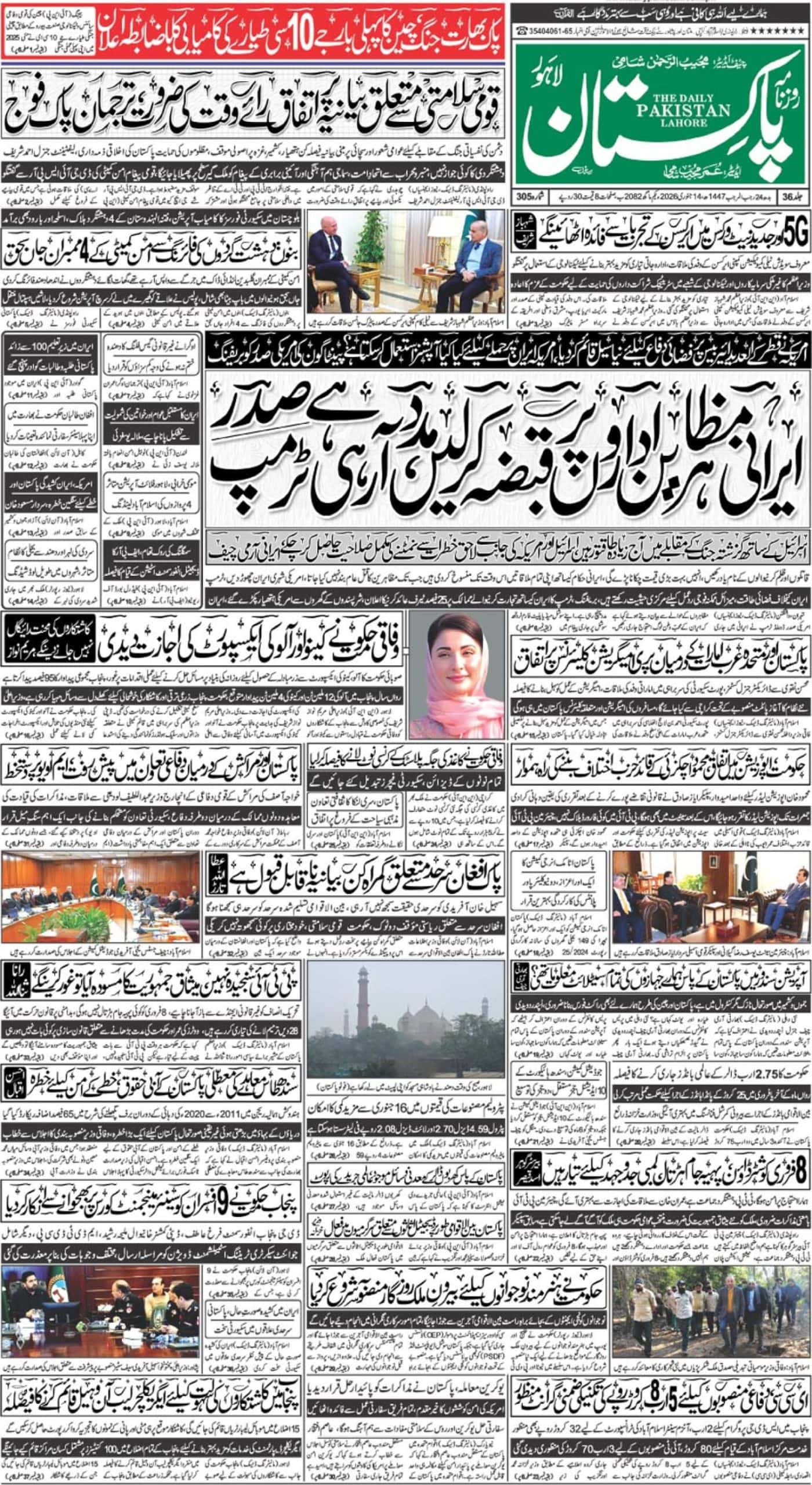ISLAMABAD – The leadership of almost all major political parties came together in Islamabad to commit their support for the provision of quality education to all Pakistani children.
In a landmark education conference titled Ailaan-e-Amal, the leadership from PML-N, PPP, PTI, National Party (NP), ANP, Jamat-e-Islami, QaumiWatan Party (QWP), PSP, MQM-P, PML-Q, JUI-F, PKMAP, and BNP-M pledged to go beyond political differences and proceed with a minimum national reform agenda for education.

The national education conference was hosted by education campaign AlifAilaan. Political representatives in the meeting included Punjab School Education Minister Rana Mashhood, KP Education Minister Muhammad Atif Khan, ANP’s AfrasiabKhattak and Sardar Hussain Babak, PTI’s Chaudhry Muhammad Sarwar, PPP MNA Dr.AzraPechuho, MQM-P Convenor Khalid Maqbool Siddiqui and Faisal Subzwari, JUI-F MPA Noor Saleem Khan, BNP-M’s Senator JehanzebJamaldini, PkMap’s Senator Usman Kakar, PSP’s General Secretary Raza Haroon, QWP’s MPA Anisa Zeb Tahirkheli and Barrister Masroor, NP’s Senator Muhammad Akram, and PML’s Central VP Ajmal Wazir Khan.
In a unique gathering of political leadership, the national commitment to improving learning outcomes in schools and delivering on the State’s obligation to provide compulsory and free education for all children between ages of 5-16 was discussed.

The gathered political leaders discussed and pledged their support for a minimum reform agenda, which included:
a) A continual increase in provincial and federal education spending taking it to 4% of the GDP, supported by substantial governance reform to ensure that the allocated funds are spent effectively and transparently.
b) A national data regime that captures data on all children in all types of schools, which is shared openly and publicly to ensure transparency in reform.
c) Mandatory pre-service and in-service teacher training, with career progression based on performance and training.
d) All Pakistan’s children to be tested at Class 3, Class 5, and Class 8, regardless of geographical location or schooling system they are enrolled in.
e) Ensure enrolment and retention of all children between the ages of 5-16 (in the primary, middle and high schools, including madrassas) and bringing gender parity in graduation rates from primary to middle.
f) Designation of “education deprived areas” for Union Councils who are underperforming on gender parity, retention, provision of post-primary schools and quality of infrastructure.
The reform agenda was detailed in a Charter for Education, which was signed by all the present political leadership. All parties committed to ensuring that the agreed charter was adopted into their respective election manifestos. They also committed to developing a plan of implementation within 100 days of the oath-taking of the future CMs after the upcoming elections.
PTI’s Chaudhry Muhammad Sarwar stated, “In a country like Pakistan, where 23 million children are still out of school, a national emergency must be declared after the General Elections. We will need to set strict targets to get them all in school and get them learning.”
PPP MNA Dr AzraPechuho was of the view that there is a need for legislation extending beyond the provision of free and compulsory education to legislation on quality, teacher availability and budget utilization.
KP Minister for Education Muhammad Atif Khan said “Party leaders should sign Ailaan-e-Amal so that their voters can hold them accountable after the elections.”
Punjab School Education Minister Rana Mashhood stated “It is heartening to see that all provincial governments have prioritized education since 2013 and Punjab, specifically, focused on providing quality education.”
Charter of Education
Besides the conference, a charter of education was also presented to improve the standard of education in the country. The salient features of said charter are as below:
Data
All children, all schools
• The Annual School Census should capture data of all children enrolled in any type of school
• The Census results should be released within three months of collection
• The Census should also capture data for (standardized) learning outcomes at the school level
• The existing monitoring data sets should be publicly available in real time
• Registration of birth / Educational Reg # / Utilize existing database(s)
Access
Post-primary
• Ensure retention throughout the 5-16 age (primary, middle and high schools), including madrasahs
• Gender parity in graduation rates from primary to middle
• Mandatory provision of boundary walls, water, and latrines in all girls’ middle and high schools on emergent basis
• From ages 9 and above ensure transportation facilities for all girls eligible for middle and high schools
Deprived areas
· Designation of ‘education deprived area’ of the least performing Union Councils based on the following criteria:*
o Gender parity (total number of girls enrolled in school as a percentage of total number of boys in school in the given UC)
o Retention rate (percentage of grade 4 students retained as a proportion of grade 2 students in schools in the given UC)
o Post-primary to primary schools (number of middle and high schools as a proportion of primary schools in the given UC)
o Infrastructural facilities (percentage of schools with availability of water, toilet, boundary wall and electricity in the given UC)
· Clear guidelines on how to address inadequacies
· Role of national instruments to support education deprived areas
* Out of total 11,194 total union councils in Pakistan, using the above mentioned criteria 1,120 least performing ‘education deprived union councils’ have been identified. Excluding the UCs for which complete data was not available, a composite index was prepared where each of the above mentioned category was given equal weightage (25%).
Teachers
• Head teachers for all schools to be given management training
• Standard career plan for all recruited teachers and clear distinction between teaching paths and management paths
• All parties reaffirm merit based recruitment and will work to deny any opportunity for teacher recruitment on any basis other than merit
Quality
• Mandatory pre-service teacher training for all recruited teachers prior to deployment
• Periodic modern and needs based in-service teacher training
• Enabling peer-learning networks at Tehsil/Taluka level
• Promotions should be based on testing and performance of teachers
• Non-Salary Budget for school-based quality initiatives
Financing
More money, better spent
• 4% of GDP commitment to be restated
• All provinces to commit a minimum of 20% of their budget annually
• Education budgets must be released in a timely manner each month
• Education budgets must be utilised more effectively
• Education departments and local governments must report on a quarterly basis so that budget performance is tracked and laggards are identified in a timely manner
• Schools as cost-centers – beginning with at least high schools…. devolved fiscal transfers and responsibilities
• Transparency in budget numbers, publicly available utilization data
Transformation
Dramatic, not incremental
• Parties to adopt charter and reflect it in their manifestos
• Charter to be agreed with a plan for implementation within 100 days of the CMs’ oath-taking after the 2018 general elections
• Pledge to implement a program for frequent and sustained Education Review process by the Secretaries, Ministers, and Chief Ministers, in consultation with civil society
Learning outcomes
• All children to be tested at the class 3, class 5, and class 8 level regardless of geographical location or system of schooling based on national minimal standards
• Reading/Comprehension, maths and science skills to be prioritized
• Problem solving and creativity
• Social skills and ethics
-PR













